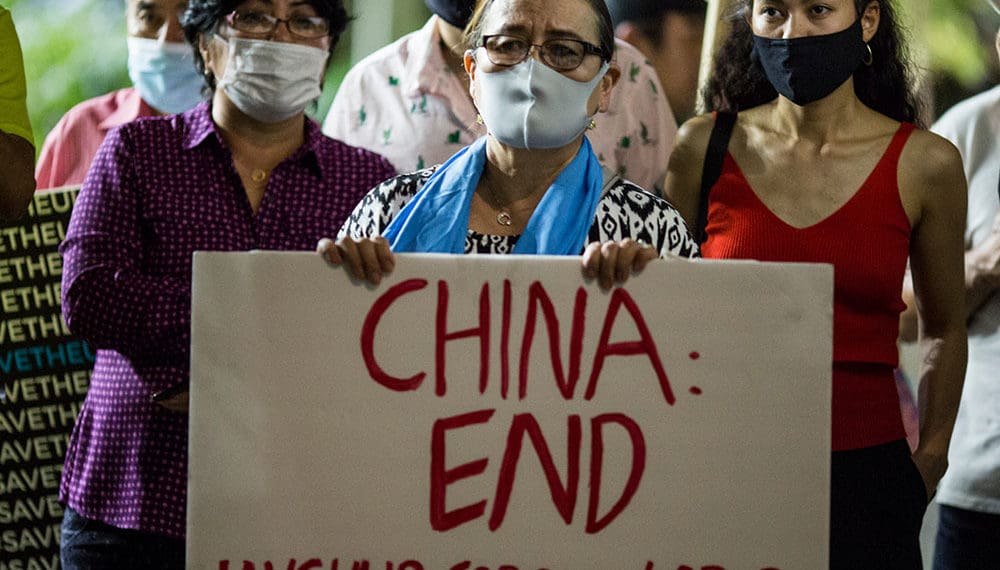As retailers look for fourth-quarter sales to get them into the black (or keep them there), it’s understandable for a sales-first mentality to develop. But as Creditsafe’s Matthew Debbage argues, compliance needs a seat at the table, too.
The holiday season tends to be a stressful time for most brands and retailers, with a never-ending to-do list and a jam-packed calendar of meetings, deadlines and holiday parties. On top of that, the holiday season is one of the most important sales periods of the year for many brands and retailers. In fact, a new Creditsafe study on the economics of holiday sales found that 88% of retailers are counting on 2023 holiday sales to account for up to 40% of their annual sales. Those are big and ambitious goals.
While it’s great to see retailers being ambitious with their sales goals, this inevitably adds pressure onto retail compliance professionals, who are charged with maintaining compliance with regulations and industry standards. And that’s where a big dilemma arises: hitting holiday sales targets or protecting the integrity of supply chains.
Is it an either/or scenario? Can both be possible?
As retailers gear up for the holiday sales surge, the focus naturally shifts to maintaining liquidity, augmenting sales volumes and making sure suppliers meet their obligations. However, putting compliance on the back burner could land retailers in hot water. Take, for example, earlier this year when U.S. Sens. Alex Padilla and John Hickenlooper interrogated executives from prominent U.S. retailers, including Walmart, Target and J. Crew in response to revelations of child labor exploitation within their supply chains. Among the list of questions, the senators asked the retail executives how they investigate their suppliers and train their employees to prevent child labor violations.
This line of questioning underscores the urgency with which businesses must address supplier due diligence, as it doesn’t just affect operational integrity but also reputational capital and financial stability. Poor supplier due diligence isn’t just bad for operations; it’s bad for your reputation and your bottom line, too.
Finding common ground between retail sales and compliance
Retail sales and marketing teams have certain priorities and goals. They need to make sure they have enough inventory ordered and stocked in time to meet holiday shoppers’ demand. Otherwise, they may not hit their holiday sales targets, which could affect the company’s annual revenue.
But compliance teams have their goals, too, including vetting suppliers to make sure they aren’t in breach of sanctions, using child labor or forced labor and creating more risk for the business. And they must do so without creating supply chain bottlenecks that could affect the company’s sales and profitability. Under normal circumstances, it’s a tall order to deliver. But when you add in the pressures of hitting holiday sales targets, it’s even more complicated and stressful.
While this should not be an either/or scenario, many times retail sales/marketing and retail compliance teams are working in silos and don’t understand the priorities and goals of each department.
How Much Do You Really Know About Your Suppliers?
Ethical sourcing and due diligence have become crucial components of third-party risk management. But as Creditsafe's Matthew Debbage explains, many companies still aren’t taking the threat seriously
Read moreDetailsWhat both departments should keep in mind is that 83% of global consumers are willing to spend more on products that are ethically sourced, according to a study by OpenText. Understanding the nature and buying preferences of consumers is the first step in bridging the retail sales and compliance gap. The next step is communicating with each other and working closely together to come up with clear supply chain and financial strategies, processes and systems that benefit the bottom line and adhere to local, federal and international regulations and industry standards.
The recent Creditsafe study underscores the gravity of this retail compliance dilemma. On the one hand, 52% of brands are prepared to immediately sever ties with suppliers who use forced labor or child labor. But the study also found that over half (53%) of brands don’t run compliance checks on their suppliers.
Brands’ ethical beliefs and compliance practices aren’t lining up with each other. If you’re willing to cut off ties immediately with violating suppliers, then you need to be just as serious and diligent about running compliance checks on them. Otherwise, how will you ever know if they’re violating regulations and in breach of your brand’s corporate social responsibility or ESG policies?
Why are compliance checks important? For one, they can uncover if suppliers have been found to be in violation of child labor and forced labor regulations, have been involved in financial crimes and have breached international sanctions. Plus, retailers can also use these compliance checks to check company directors (and their family members) against politically exposed persons (PEP) lists.
It’s not enough for retailers to publicly announce their commitment to CSR and ethical sourcing. They need to back those claims up with action — conducting robust due diligence on suppliers to make sure their goods are ethically sourced. Not doing so won’t simply lead to compliance violations, it could also jeopardize sales as shoppers will take their wallets and loyalty elsewhere.
A variety of local and national laws shape how businesses operate, covering everything from pay rules and workplace safety to preventing child and forced labor in supply chains. Navigating legislation and doing what is right can be challenging to accomplish, especially around the holiday rush. These laws, while robust in intent, often present a labyrinth of intricacies and ambiguities, particularly in sectors like retail, fashion and consumer packaged goods.
But what’s not vague are the fines imposed on companies for violating these regulations. A single violation can cost upwards of $250,000 and failing to prove the necessary due diligence measures have been taken could lead to even more fines, which could become a serious financial drain for retailers who are already struggling amidst the impending recession. Several well-known and popular retailers have gone bankrupt in the past few years, including Bed Bath & Beyond, Party City and Lord & Taylor. The last thing retailers need is to add government fines to their financial pressures.
Balancing ethical sourcing and profitability requires patience, joined-up thinking and technology
It seems almost crazy when you hear that more than half of brands are willingly working with sanctioned or unethical suppliers because they aren’t checking them regularly. This finding is indicative of a larger problem in the retail industry. Many businesses are doing due diligence as a tick-box exercise and not using the results to drive their business decisions and protect the integrity of their supply chains.
This needs to change if brands want to restore customer confidence and position themselves for long-term growth.
The key is not to just run a compliance check once and then be done. Just like with credit risk, brands should regularly monitor their global supply chain for compliance issues. That’s the purpose of compliance checks: to give you the information you need to avoid working with unethical, corrupt suppliers and, ultimately, prevent your company from incurring financial, legal and reputational damage.
Not prioritizing due diligence, both within your own business and with the international suppliers you work with, could have serious consequences. Not only could retailers lose the loyalty and repeat sales of customers, but their brand reputation could take a huge hit with negative publicity and plummeting stock prices.




 Matthew Debbage is the CEO of the Americas and Asia for Creditsafe. As a longtime veteran of Creditsafe, he has held various leadership roles including COO of Creditsafe Group and CEO of the Americas and Asia since 2012. Over the past 10 years, he led the expansion of the business in the United States, where he has built a high-performing team, driven impressive revenue growth and worked with thousands of American businesses across various industries.
Matthew Debbage is the CEO of the Americas and Asia for Creditsafe. As a longtime veteran of Creditsafe, he has held various leadership roles including COO of Creditsafe Group and CEO of the Americas and Asia since 2012. Over the past 10 years, he led the expansion of the business in the United States, where he has built a high-performing team, driven impressive revenue growth and worked with thousands of American businesses across various industries. 








